 |
 |
Fairly certain its a smooth newt.: |
| Author | Message |
|
PsYcHoTiCMaDmAn Member Joined: 05 Oct 2008 No. of posts: 9 View other posts by PsYcHoTiCMaDmAn |
Posted: 06 Oct 2008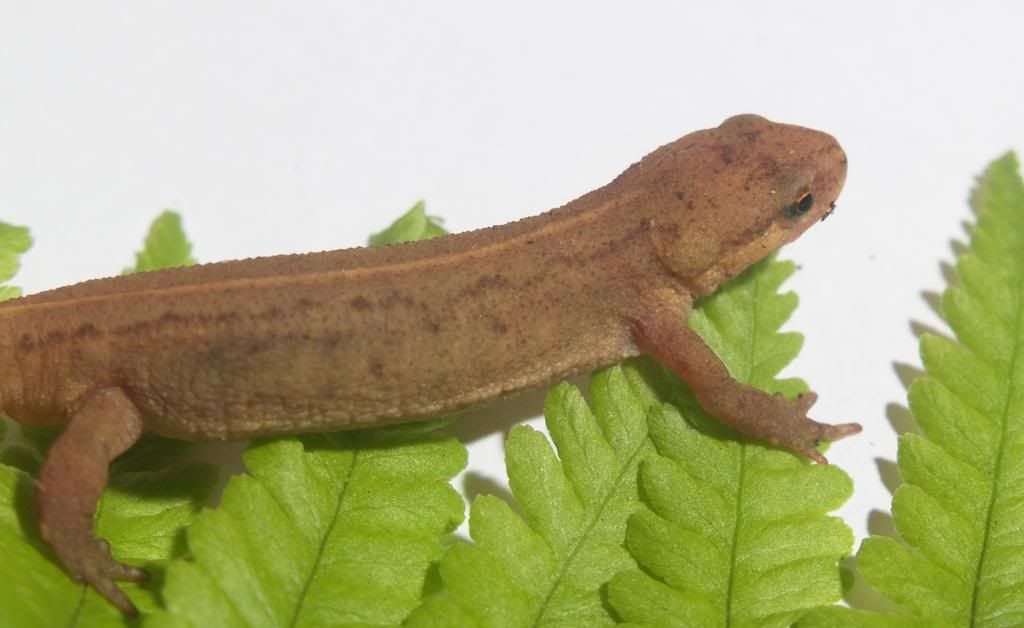 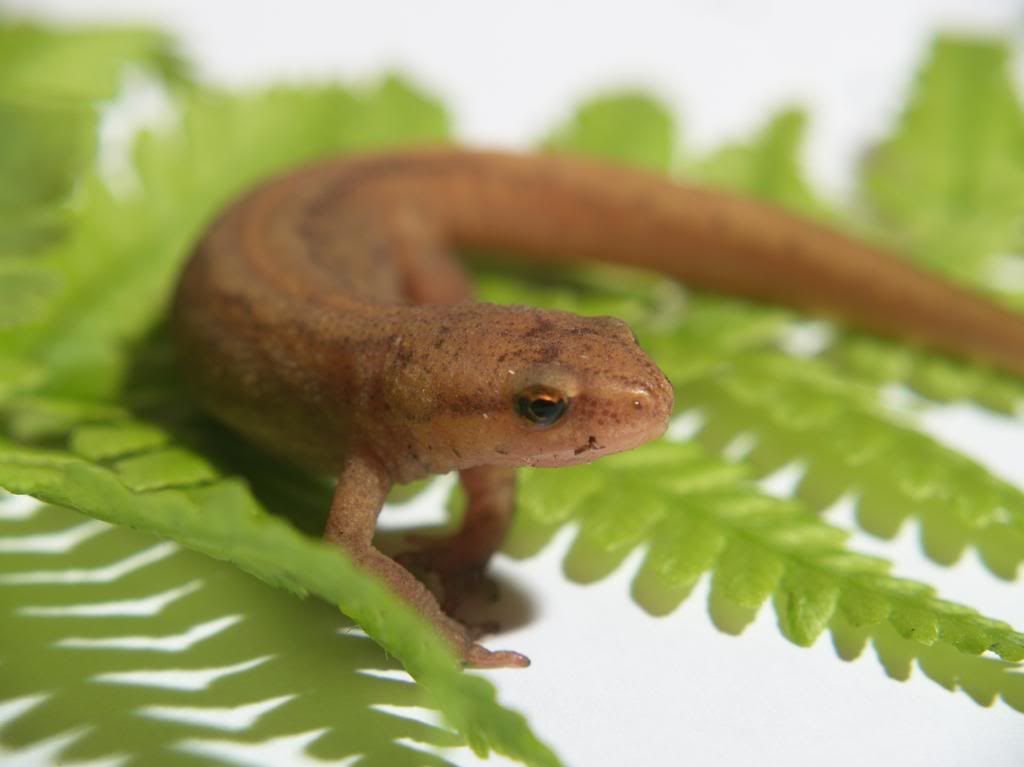 rescued off the road. 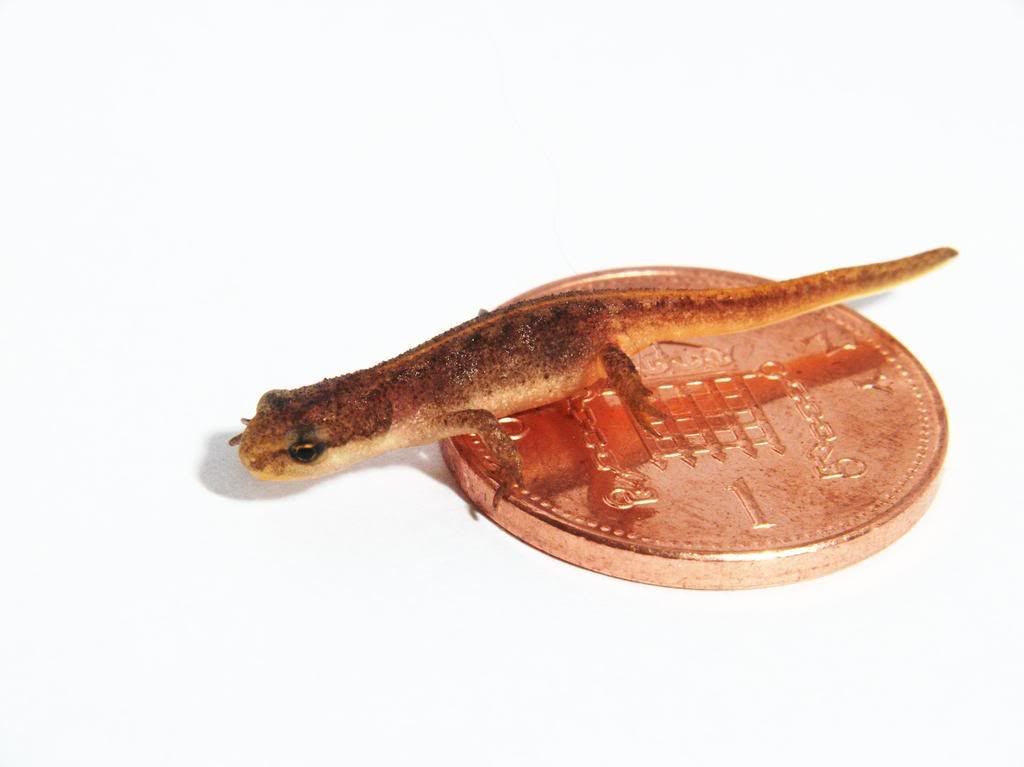 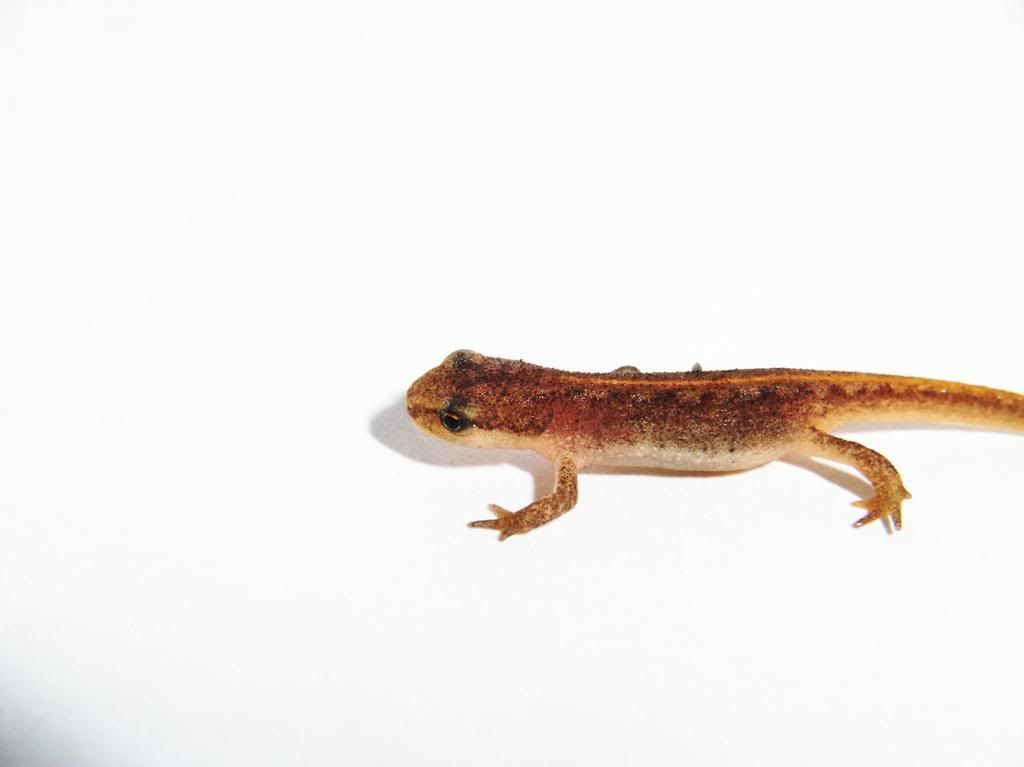 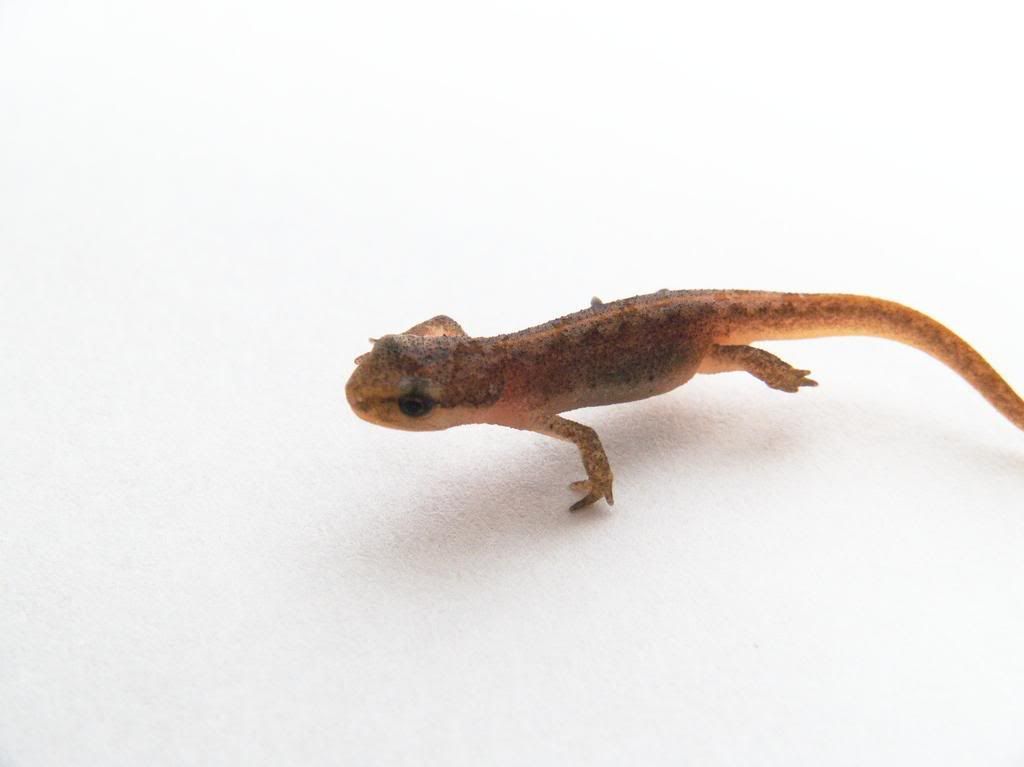 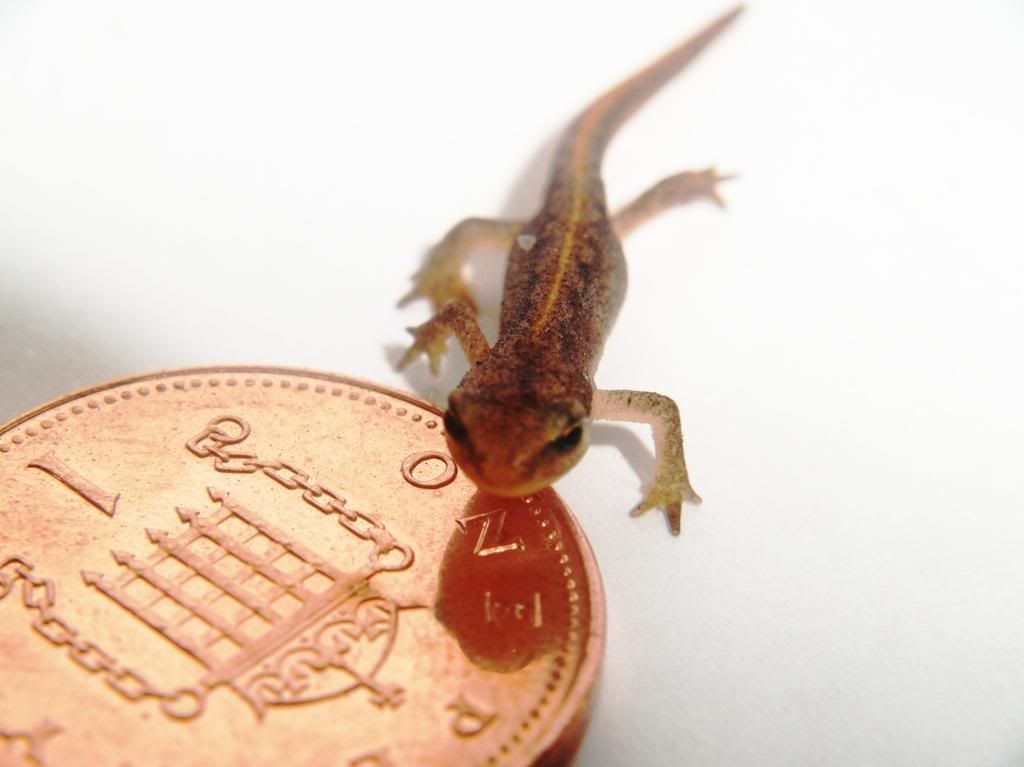 again rescued of the road, penny was for size comparison. wondering about attempting to captive breed some to release into some nature ponds/marshy area when their big enough. |
|
tim hamlett Senior Member Joined: 17 Dec 2006 No. of posts: 572  View other posts by tim hamlett |
Posted: 07 Oct 2008 hi...nice pics are you sure they're smooth and not palmate newts? tim |
|
dave fixx Senior Member Joined: 13 Mar 2007 No. of posts: 319  View other posts by dave fixx |
Posted: 07 Oct 2008 Nice pics.Pop a pond in the garden(if possible) and in my experiance you will have no trouble breeding them.If they are in the area they will normally find your pond. Breeding in tanks is a different matter and one I have zilch knowledge for so cant help.Judging by their size I would say your a couple of years at least off breeding though.  Dave Williams davewilliamsphotography.co.uk |
|
tim hamlett Senior Member Joined: 17 Dec 2006 No. of posts: 572  View other posts by tim hamlett |
Posted: 07 Oct 2008 newts will breed in a tank. you need natural water, food and the right sort of weeds for the females to lay their eggs. however, i would definitely agree with dave and put a pond in. it only has to be small and you will still easily be able to monitor the newts progress etc. you'll get other wildlife too tim |
|
Suzi Senior Member Joined: 06 Apr 2005 No. of posts: 860 View other posts by Suzi |
Posted: 07 Oct 2008 I have newts in my pond but I have only had glimpses of them and never see young. I look at night also with a torch. My brother has bred them in tanks - at least you can see them easily. Suz |
|
Peter Senior Member Joined: 17 Jan 2008 No. of posts: 260 View other posts by Peter |
Posted: 07 Oct 2008 A pond is the favourite, and you can always set up an aquarium to observe courtship behaviour for a week or two during the season as well as egg laying if you provide some oxygenating plants. Looking at the solid continuation of the dorsal line on the tail, I would say that you have palmate newts. Any shots of the animal`s throat? 
|
|
PsYcHoTiCMaDmAn Member Joined: 05 Oct 2008 No. of posts: 9 View other posts by PsYcHoTiCMaDmAn |
Posted: 08 Oct 2008 no decent photos of the throat, most of mine I tried to get near eye level or above. plus I keep the camera in full manual, so need both hands, so getting the newt into position wouldn't be easy however, I did find another newt outside last night, and it looked quite different to what I was used to. about twice as big as the babies, but 1/3-1/2 smaller than the adult pictured at the beginning. 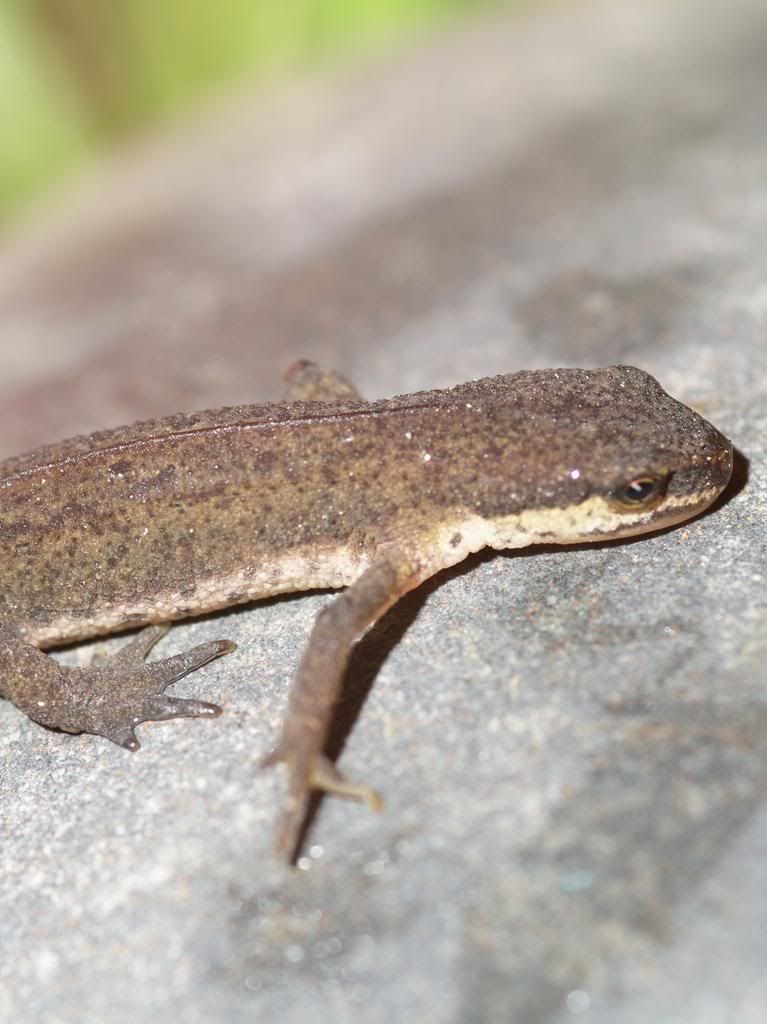 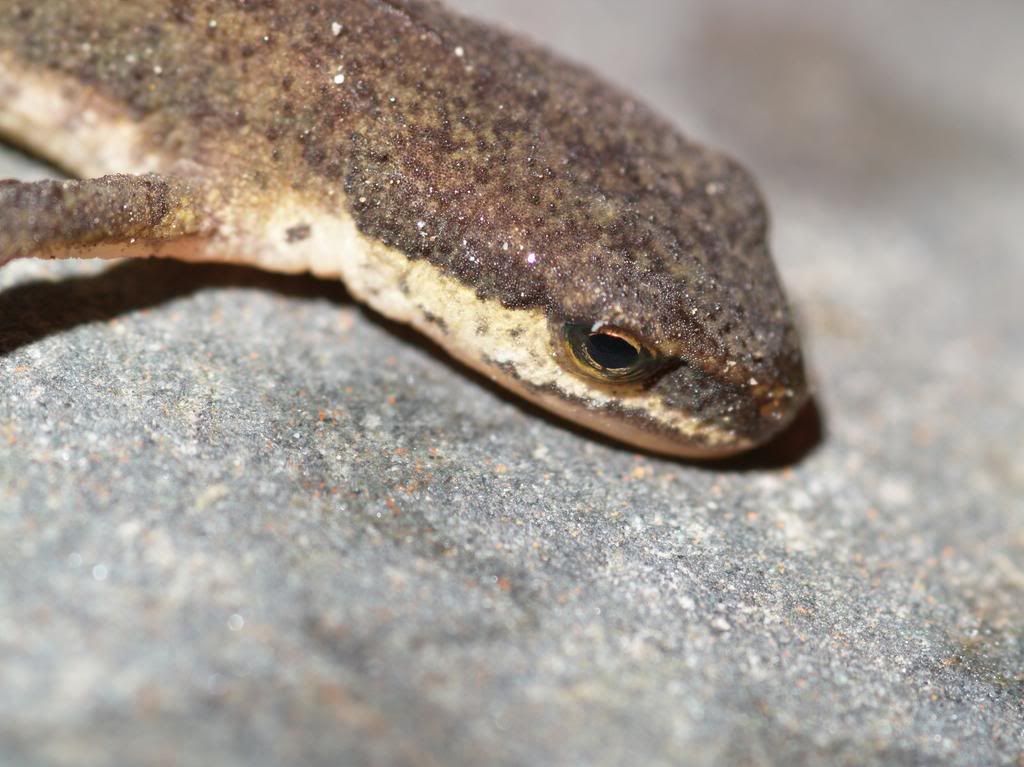 |
|
Peter Senior Member Joined: 17 Jan 2008 No. of posts: 260 View other posts by Peter |
Posted: 08 Oct 2008 Looks like it may be a male palmate. It would be worth your while getting throat and belly shots (another pair of hands could assist you in this regard) which would make ID a good deal easier.  
|
|
tim hamlett Senior Member Joined: 17 Dec 2006 No. of posts: 572  View other posts by tim hamlett |
Posted: 08 Oct 2008 yep...palmates tim |
|
calumma Senior Member Joined: 27 Jun 2003 No. of posts: 351 View other posts by calumma |
Posted: 09 Oct 2008 Definitely palmate, one of the key things to look at is the dorsal stripe - particularly useful for identifying efts. In smooth newts, the stripe disappears along the back. In palmates it continues down the tail. Lee Brady Kent Herpetofauna Recorder | Independent Ecological Consultant |
|
PsYcHoTiCMaDmAn Member Joined: 05 Oct 2008 No. of posts: 9 View other posts by PsYcHoTiCMaDmAn |
Posted: 09 Oct 2008 that would make them all palmates then. will keep an eye out for them, as the babies in particular are very cute. though I wish they'd stop moving so I could get better photos |
|
Caleb Forum Coordinator Joined: 17 Feb 2003 No. of posts: 448 View other posts by Caleb |
Posted: 10 Oct 2008 [QUOTE=Peter] Looking at the solid continuation of the dorsal lineáon the tail, I wouldásay thatáyou have palmate newts.á Any shots of the animal`s throat? [/QUOTE]Throat colouration is no good for identifying juveniles- juvenile smooths and palmates both invariably have unmarked throats. |
|
Peter Senior Member Joined: 17 Jan 2008 No. of posts: 260 View other posts by Peter |
Posted: 12 Oct 2008 Thanks Caleb  The first animal looks like an adult female. I didn`t make my self very clear.  To the original poster, where abouts in the country are you? Palmates are a good deal commoner than smooth newts locally to me also (south wales). 
|
|
PsYcHoTiCMaDmAn Member Joined: 05 Oct 2008 No. of posts: 9 View other posts by PsYcHoTiCMaDmAn |
Posted: 14 Oct 2008 west Wales, below Aberystwyth. found a few more since, and they have spotted bellies and plain throats, got to upload some new photos sometime |
|
Peter Senior Member Joined: 17 Jan 2008 No. of posts: 260 View other posts by Peter |
Posted: 14 Oct 2008 I know the area well! Are you as far south as Newquay or not that far? Feel free to PM 
|
- Fairly certain its a smooth newt. |